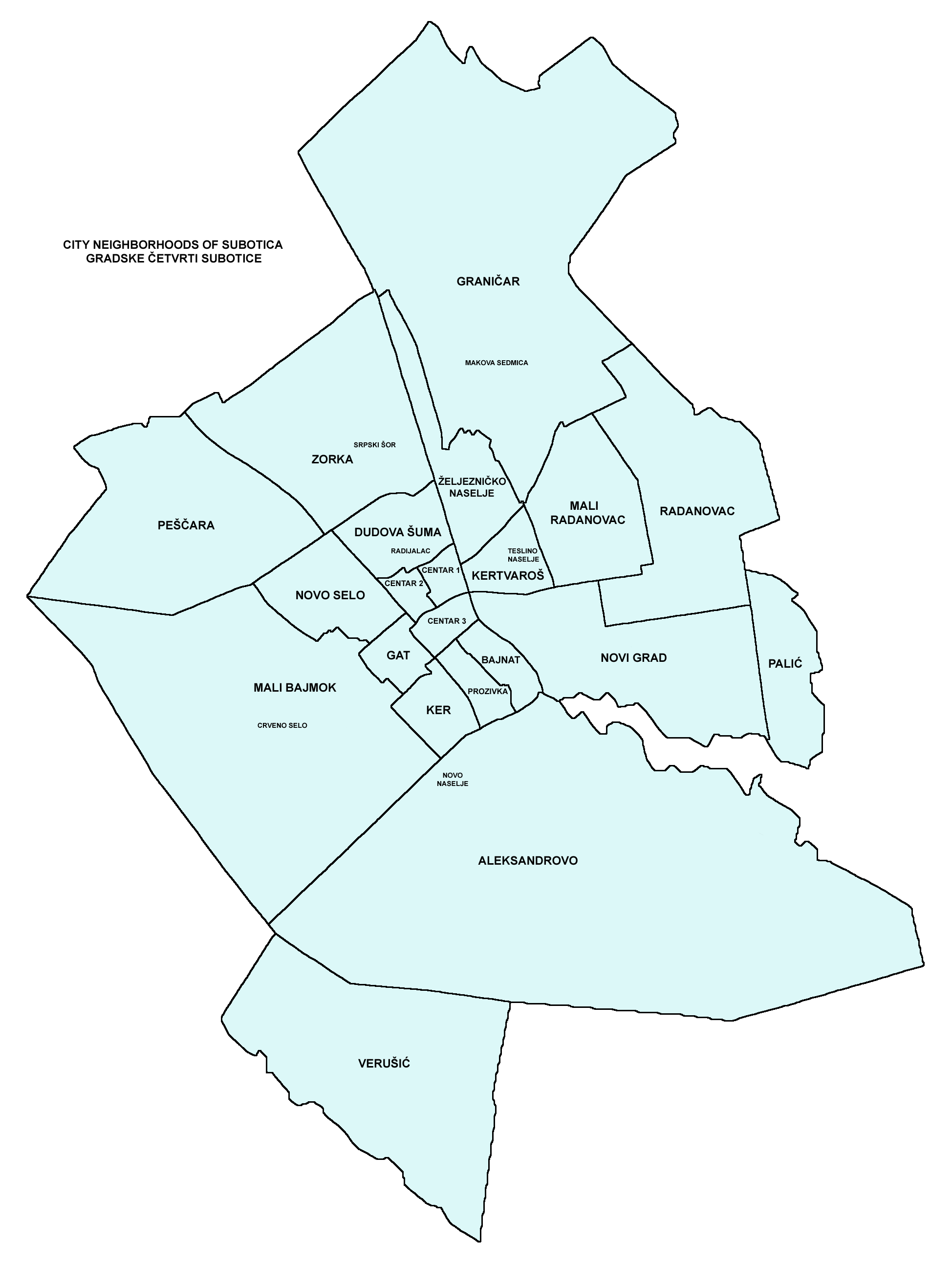|
Novo Naselje (other)
Novo Naselje ("New Settlement") may refer to: *Novo Naselje (Novi Sad) *Novo Naselje (Subotica) *Novo Naselje (Futog) *Novo Naselje (Padinska Skela) *Novo Naselje (Lipljan) See also * Novo Selo (other) * Novi Grad (other) {{Disambiguation ... [...More Info...] [...Related Items...] OR: [Wikipedia] [Google] [Baidu] |
Novo Naselje (Novi Sad)
Bistrica ( sr-Cyrl, Бистрица), also known as Novo Naselje ( sr-Cyrl, Ново Насеље), is an urban neighborhood of the city of Novi Sad, Serbia. Bistrica (including Satelit) is one of the most populated urban areas of the city. Names The old name of the settlement was ''Novo Naselje'', but it was officially changed to ''Bistrica'' in 1992. However, most of the inhabitants of the settlement still prefer to use the old name. In Hungarian language, Hungarian the place is known as ''Újtelep''. Satelit neighborhood would get its name due to the launch of the Sputnik 1 satellite in 1957, starting the space era craze, as well the neighborhood being located far from the majority of the city (as a satellite to the city). Tozinovac neighborhood would get its name after the mayor of Novi Sad at the time, Todor Jovanović Toza. Šonsi neighborhood would get its name after the 29th Chess Olympiad held in Novi Sad (ŠONSI-Šahovska Olimpijada Novi Sad), due to chess competitors ... [...More Info...] [...Related Items...] OR: [Wikipedia] [Google] [Baidu] |
Novo Naselje (Subotica)
Aleksandrovo ( Serbian Cyrillic: Александрово) is a neighborhood of Subotica Subotica ( sr-cyrl, Суботица, ; hu, Szabadka) is a List of cities in Serbia, city and the administrative center of the North Bačka District in the autonomous province of Vojvodina, Serbia. Formerly the largest city of Vojvodina region, ..., Serbia. Name It is most commonly known as ''Aleksandrovo'' (Александрово) or ''Šandor'' (Шандор), but it is also known as ''Novo Naselje'' (Ново Насеље). The Serbian name is Александрово (Cyrillic) or ''Aleksandrovo'' (Latin). Croats and Bunjevci call this part of Subotica ''Šandor'', and the inhabitant of Šandor is called ''Šandorčanin''. In Hungarian, this part of Subotica is called ''Sándor''. In German sources this village was called ''Schandor''. History There are traces of older settlements at this location dating from Bronze Age, time of the Sarmatians and Middle Ages. Aleksandrovo w ... [...More Info...] [...Related Items...] OR: [Wikipedia] [Google] [Baidu] |
Novo Naselje (Futog)
Novo Naselje ("New Settlement") may refer to: *Novo Naselje (Novi Sad) *Novo Naselje (Subotica) * Novo Naselje (Futog) * Novo Naselje (Padinska Skela) * Novo Naselje (Lipljan) See also * Novo Selo (other) Novo Selo, meaning "new village" in several Slavic languages, may refer to the following places: In Albania *Novoselë, a municipality in the Vlorë District *Novoselë, Kolonjë, a municipality in the Kolonjë District In Austria * Novo Selo, Cr ... * Novi Grad (other) {{Disambiguation ... [...More Info...] [...Related Items...] OR: [Wikipedia] [Google] [Baidu] |
Novo Naselje (Padinska Skela)
Padinska Skela ( sr-Cyrl, Падинска Скела), or colloquially Padinjak (), is a suburban settlement of Belgrade, the capital of Serbia. It is located in the Belgrade's municipality of Palilula. Location Padinska Skela is located in the northern, Banat section of the municipality, 15 kilometers north of downtown Belgrade, on the ''Zrenjaninski put'' road which connects Belgrade with the town of Zrenjanin, in Vojvodina. It is built right in the middle of the Pančevački Rit, major floodplain between the rivers of Danube and Tamiš. History In the early 20th century, Slovak cattle-breeders from the village of Padina were taking land in Pančevački Rit on lease. As the area was a marshland, to reach their land they had to use flatboats (in Serbian ''skela''), thus giving the name to the area (Padinska Skela = Padina’s Flatboat). Few short streets in the middle of the large marsh existed prior to 1944. They were sparsely inhabited by the Germans, Ruthenians ... [...More Info...] [...Related Items...] OR: [Wikipedia] [Google] [Baidu] |
